Theobald Owusu-Ansah, President of the Hepatitis Foundation of Ghana and Hepatitis Coalition of Ghana and Guest Blogger, shares his efforts to eliminate hepatitis B in Ghana.
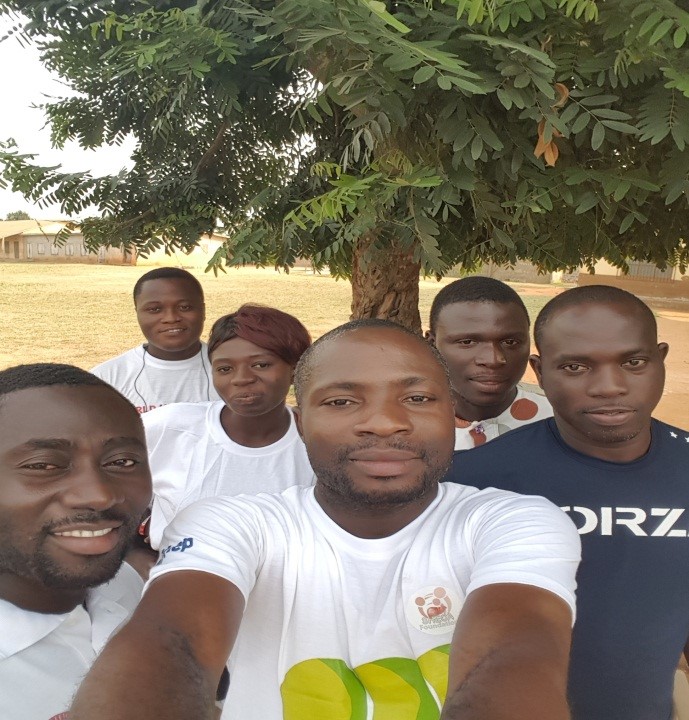
Viral Hepatitis is very common in Ghana, but awareness and testing has remained low. The Hepatitis Foundation of Ghana is working hard to address these gaps. Our mission is to eliminate viral hepatitis and improve the quality of life for those living with chronic hepatitis B and C in Ghana. We have a robust viral hepatitis community screening and awareness program. Through this program, we are working to reduce hepatitis B and C transmission among people in Agona, a farming community in the Nzema East Municipality of the Western region, Ketu South of the Volta Region, Kumasi in the Ashanti Region and Sekondi Komfoase and Takoradi in the Western; and also raise awareness on viral hepatitis infection, reducing stigma and discrimination through free screening, vaccination and education activities. Since this program started, we have made great progress towards these goals! Read on to learn about our most recent successes:
EVENT AT AGONA ON 22ND DECEMBER, 2017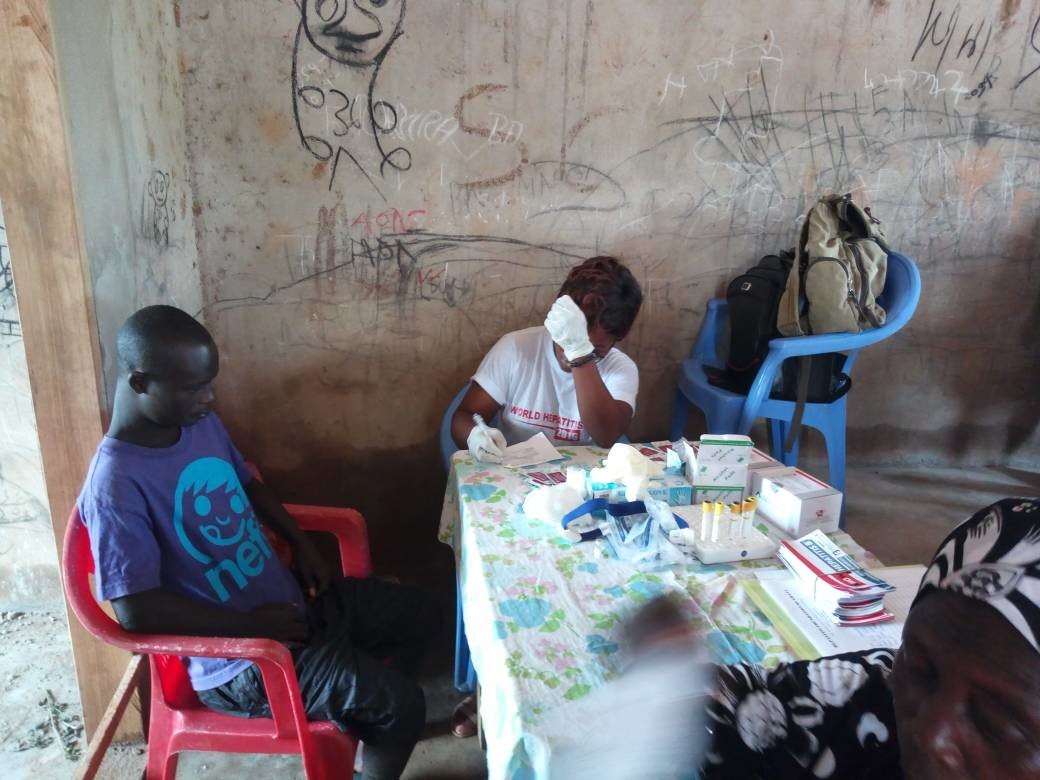
The Hepatitis Foundation of Ghana held a free hepatitis B screening, education and community gathering in Agona, a farming community in the Nzema East Municipality of the Western region A total of 101 persons were screened for hepatitis B. In all, 6 people tested positive for hepatitis B. Those who tested positive were counselled and referred to the district hospital for proper care and treatment.
EVENT AT KETU SOUTH ON 23RD DECEMBER, 2017
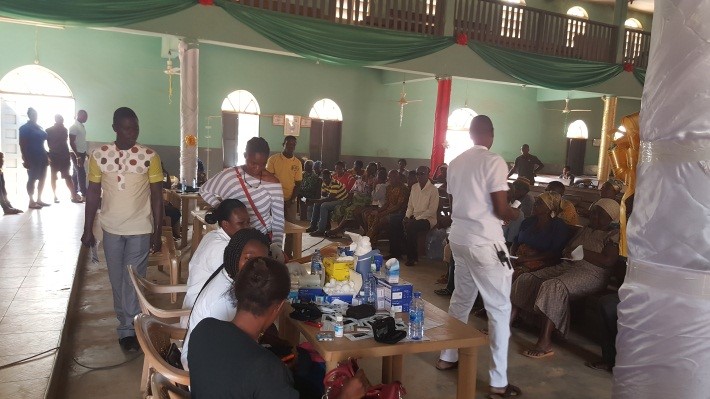 Hepatitis B free screening and education were held at Ketu South, a community in the Volta region. A total of 244 persons were screened for hepatitis B. In all, 6 people tested positive. They were counselled and referred to the district hospital for proper care and treatment.
Hepatitis B free screening and education were held at Ketu South, a community in the Volta region. A total of 244 persons were screened for hepatitis B. In all, 6 people tested positive. They were counselled and referred to the district hospital for proper care and treatment.
There have been some deaths reported within the community as a result of viral hepatitis according to the people in the community. Interestingly, a majority of the people attributed them to some form of spiritual or traditional mishaps. This was due to the lack of awareness on the risks of viral hepatitis. To help overcome these myths, hepatitis educational materials such as pamphlets and stickers were delivered to the community.
EVENT WITH VOLTIC GHANA LTD IN KUMASI ON 1st MARCH, 2018.
VENUE: KNUST CAMPUS. 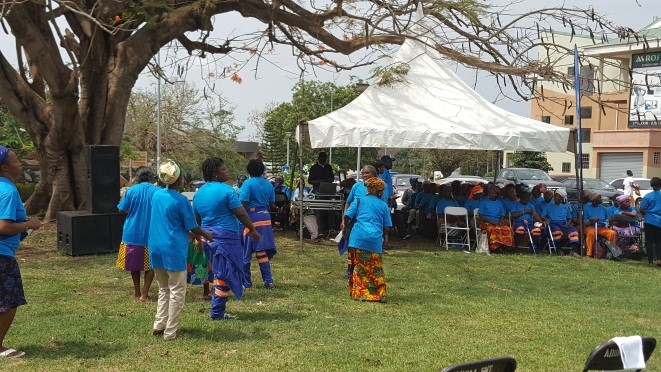
We worked with the Zoom Lion division of the Voltic Ghana Ltd, providing free hepatitis B and C testing.
Those who tested negative were provided with the first two doses of the hepatitis B vaccine. They were also educated and encouraged to spread the knowledge they had received. The people expressed their appreciation for the gesture at the end of the program and promised to get their last dose of hepatitis B vaccine!
EVENT AT SEKONDI KOMFOASE AND TAKORADI ON THE 25TH TO 26TH MAY, 2018
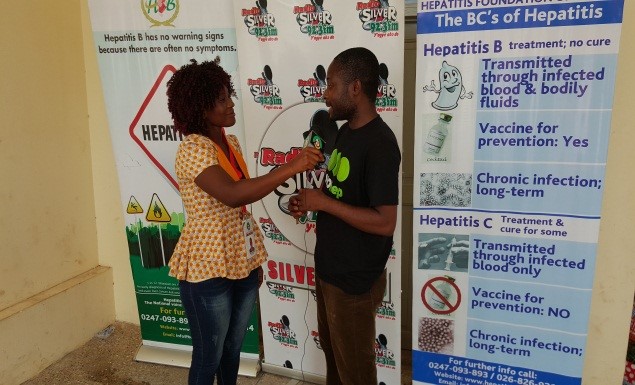 This special event began with a health walk through the streets in the Sekondi Komfoase area and followed with a hepatitis health talk and screening. Most of the people were afraid to come and do the hepatitis B and C tests because of some common perceptions on the radio and TV. I was able to share my family story with them, and that helped some of them come forward to do the test. The screening continued the next day at Home Church in Takoradi. Overcoming misperceptions about hepatitis B is very challenging – but we were able to screen179 persons, and are following up with all of those who tested positive.
This special event began with a health walk through the streets in the Sekondi Komfoase area and followed with a hepatitis health talk and screening. Most of the people were afraid to come and do the hepatitis B and C tests because of some common perceptions on the radio and TV. I was able to share my family story with them, and that helped some of them come forward to do the test. The screening continued the next day at Home Church in Takoradi. Overcoming misperceptions about hepatitis B is very challenging – but we were able to screen179 persons, and are following up with all of those who tested positive.
There is a lot of work still to be done in Ghana, but we will keep working to change knowledge, overcome challenges and get people tested, vaccinated and treated!
Thank you to Theobald for serving as our guest blogger this week! If you would like more information from Theobald Owusu-Ansah or the Hepatitis Foundation of Ghana, please visit their website or contact them here.

